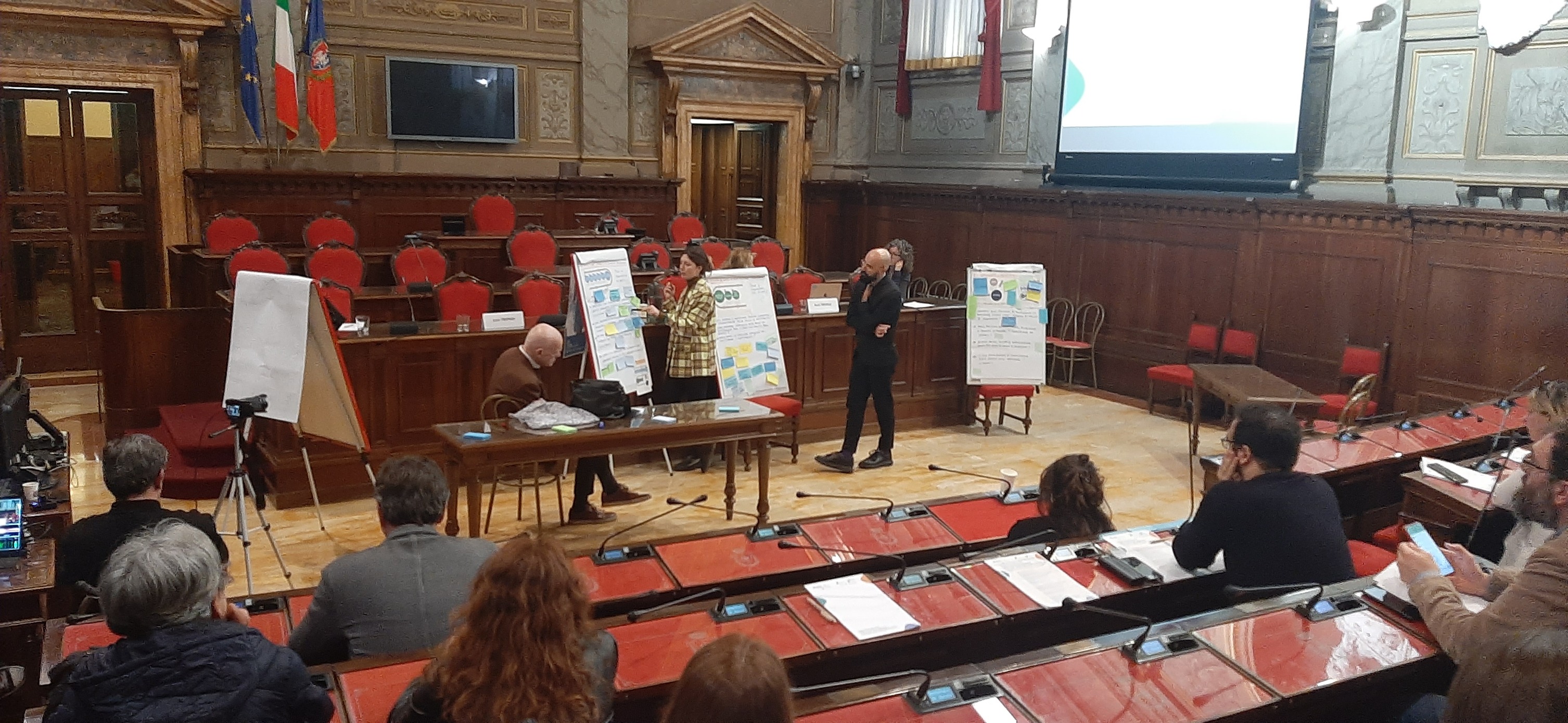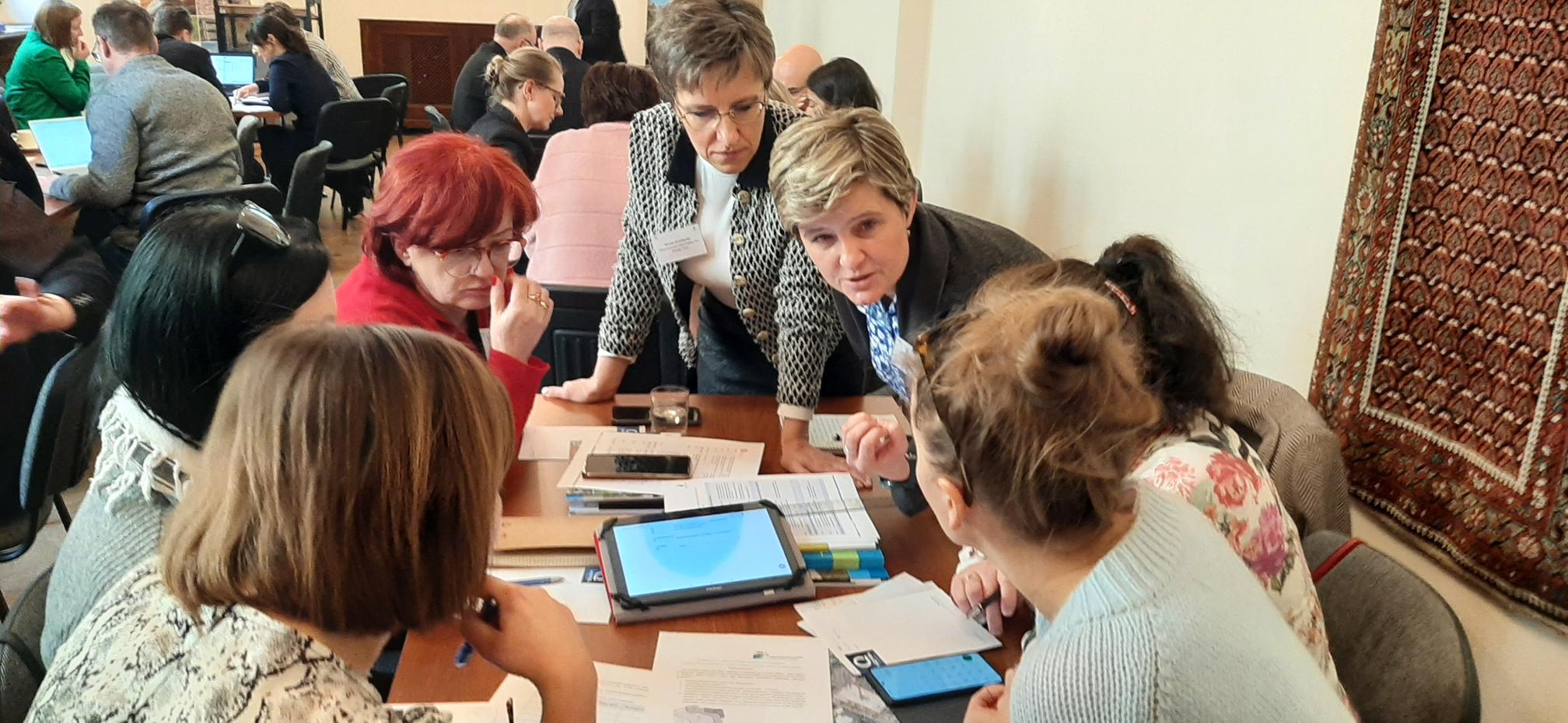
July 2023 was confirmed as the hottest month ever recorded, with global average temperatures reaching unprecedented levels. This extreme heat accompanied devastating climate events worldwide, such as droughts, heavy rainfall, floods, and wildfires. European local governments struggled with climate emergencies throughout the summer, which are becoming a bigger part of their responsibilities every year.
Adapting to climate change, previously a backdrop concern in relation to mitigation measures, has gradually imposed itself as a priority for cities and towns. However, many local governments are still in the early stages of planning and implementing adaptation measures. This makes it a critical time to support and guide them through the process, helping them understand necessary actions, planning, financing, and identifying viable solutions.
The Covenant of Mayors Policy Support Facility (PSF) programme is a 2-year pilot programme working to accelerate adaptation at local level, by supporting local authorities to implement effective adaptation measures addressing the impacts of climate change. To put local-level climate change adaptation front and centre of the conversation throughout Europe, the PSF organised national adaptation workshops for local authorities in 12 different EU countries in the past year: Hungary, Poland, Romania, Slovakia, Czech Republic, Bulgaria, Spain, Portugal, Italy, Greece, Slovenia, and Croatia.
Workshops to cultivate dialogue between different levels of government
Beyond providing tools and training for local authorities, the PSF workshops were an opportunity to ensure that regional and national governments in each country are supporting the local level in their adaptation efforts. Even though the workshops looked different in each country, they all aimed to convene representatives of regional and national governments, to foster exchanges with local authorities. Not only was it a good place for national and regional entities to present their priorities and support mechanisms to local authorities, but it also gave local representatives the space to communicate their main needs and challenges.
Ultimately this was also an opportunity for municipalities to exchange with and get inspired from peers facing similar issues.
“The workshop allowed us to further our knowledge by learning from neighbouring cities which share the same climate scenarios but reply to climate adaptation through different approaches.” - Representative from the Óbidos Municipality (Portugal)
The workshops thus showed us the different ways in which national and regional governments can encourage and facilitate locally driven adaptation measures.

Photo: PSF National Workshop in Czech Republic.
Providing support and resources to local governments
When it comes to adaptation policies, numerous competencies rest with regional and national governments. One of their main roles is setting the policies and regulations that local government must adhere to. Additionally, these levels dispose of many resources and supportive tools to assist local authorities in the implementation of measures.
In Italy, the governments of various regions have developed specific approaches to provide financial and technical support to local municipalities implementing Sustainable Energy and Climate Action Plans (SECAPs).
The region of Emilia Romagna established a fund of €1.2 million for the 2019-2020 period offering grants to over 30 municipalities to facilitate the development of their SECAPs. The region also provides technical assistance, including access to climate-related data through the Climate Regional Observatory enabling Covenant Signatories to access critical climate-related data and information at the municipal level. This support is invaluable for the development and monitoring of risk and vulnerability assessments within their SECAPs.
In Sicily, approximately €6 million in grants were made available to 390 Sicilian municipalities for the development of SECAPs, with additional funding for capacity-building and awareness-raising activities.
Since 2022, the region of Apulia introduced a budget of nearly €1 million to support municipalities in their climate action endeavours, creating vouchers for municipalities, allocated based on population size. For further support, they also created an online helpdesk offering valuable assistance to municipalities navigating the complexities of climate adaptation.
The PSF workshop in Italy was the opportunity for representatives of regional and local levels to directly exchange on the possibilities offered by this support.

Photo: PSF National Workshop in Italy.
Putting in place a favourable regulatory framework
National governments’ play a prominent role in setting up a legislative framework that encourage and support local adaptation efforts.
In Poland, for instance, most cities with more than 100,000 inhabitants already have Urban climate change adaptation plans, as outlined in the 'Strategic Adaptation Plan for Sectors and Areas Sensitive to Climate Change to 2020 with a perspective to 2030', developed by the Ministry of the Environment. According to the draft submitted for procedure by the Ministry of Climate and Environment in September 2021 (scheduled for adoption in 2023), cities with more than 20,000 inhabitants will also be required to develop municipal climate change adaptation plans (MPAs).
The PSF workshop in Poland was thus a timely opportunity to present the likely future requirements to participants, the majority of whom represented municipalities of 20,000 to 100,000 inhabitants.

Photo: PSF National Workshop in Poland.
Equipping cities with the personnel to address climate change
Beyond financial and legal barriers that local governments face, there is also the question of internal capacity and workforce dedicated to climate change adaptation.
The PSF national workshops made it clear that municipalities, regardless of their specific situations and countries, commonly struggle with a lack of capacity for implementation, especially in smaller municipalities. Participants from different regions noted a general absence of cooperation between municipal departments and a shortage of expertise. They also highlighted the need for stronger leadership to encourage collaborative efforts, given the multidisciplinary nature of climate mitigation and adaptation. Experiences shared by Bulgarian cities emphasised the need for structural changes within municipal administrations to fully commit to integrated climate action.

Photo: PSF National Workshop in Hungary.
Detalles
- Fecha de publicación
- 26 September 2023
